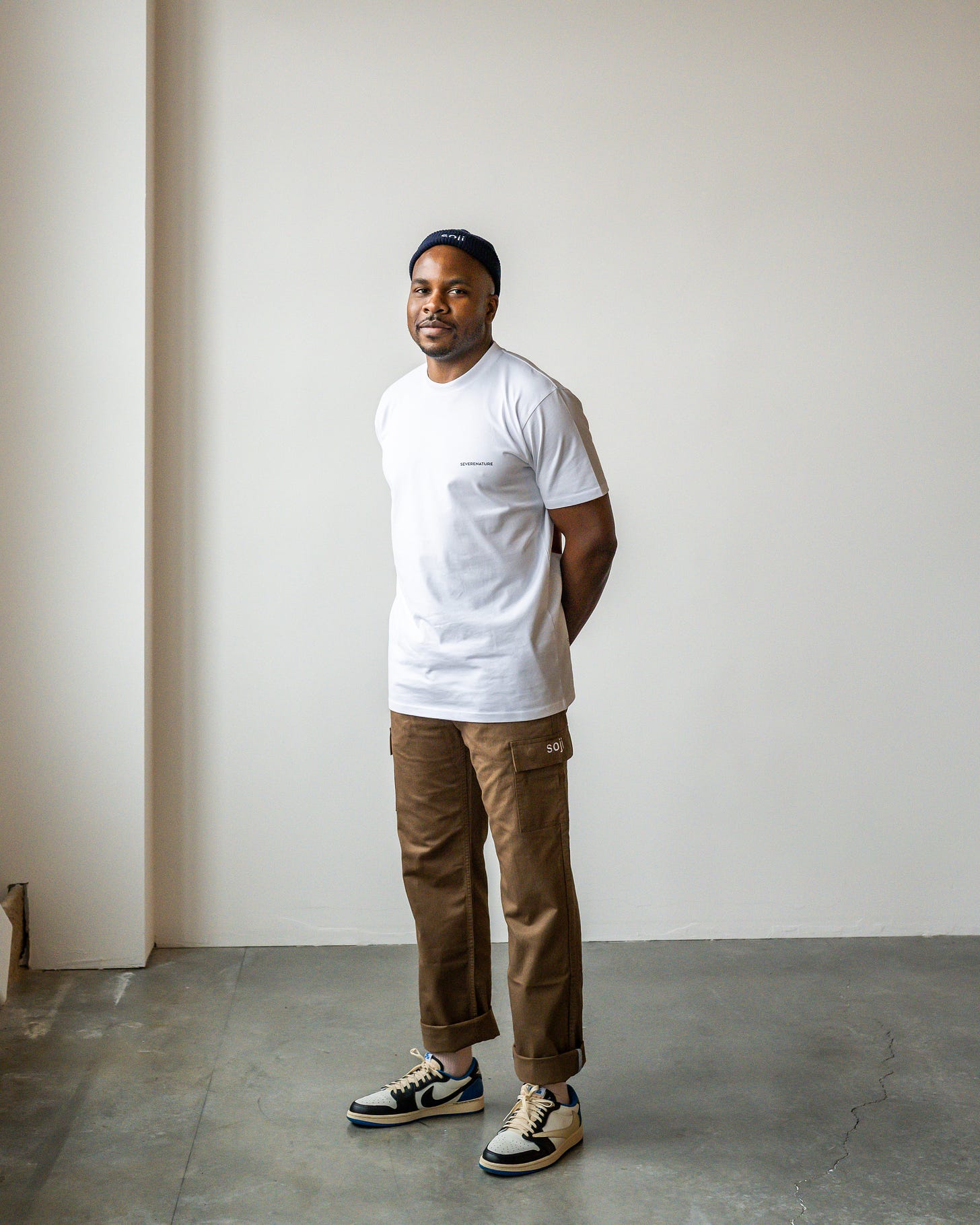Black Founder Spotlight: Sheyi Davies
The current Nike Director is all gas no breaks as soon as he clocks out of his day job.
Mobolaji Davies (known as Sheyi) was born into a Nigerian family while they lived abroad in Russia in 1990. From there they moved to Washington D.C. where he would spend most of his formative years. Post college graduation he worked in several engineering-specific roles with various large Oil and Gas companies before becoming a consultant at The Boston Consulting Group. Then he got the opportunity he’d only dreamt of as an athlete - a job offer from Nike. He’s working on some incredibly interesting projects on the Consumer & Marketplace Strategy team, but when he isn’t helping to run the swoosh, he’s also building a brand of his own.
Nick: Big Sheyi! Good to hear your voice man. So I gave my readers a brief snapshot of your background, but let’s talk a little more about how you got here.
Sheyi: Of course. I’ve always been someone who was proud to be active in sports and big into fashion. I knew I was strong analytically when I was younger, which is why I studied engineering in college. That route was much more of a means to a professional career than something I was passionate about. Going into consulting gave me the additional acumen that I needed to more tightly run a process and a company. Currently Nike has been showing me the blueprint to understanding the consumer on a much deeper level.
Nick: Love that you’ve been able to leverage all of your experiences. When did you start caring about fashion and how has that evolved over the years?
Sheyi: I’d honestly say the love has always been there, but it started with shoes. I was a huge sneakerhead growing up. The DMV has a massive footwear culture so I really leaned into that. In middle school and high school I was constantly looking into what’s hot and what’s not. How much could I flip this pair for? Which pair should I keep? So I rode that wave for a while. But what really changed my thought process of fashion head to toe was when I got to college and started traveling. When I started going to different cities I realized, “Oh wow, there’s such freedom of expressions and passion in how people dress and it varies by city, by demographic, etc.” As I made more friends and appreciated what they brought to the table, I also had a renewed sense of appreciation of my own traditional Nigerian style - everything from the fit to the fabric. And from there that passion just continued to grow.
Nick: So what led you to start a clothing brand? That’s no small feat, but I know you’ve always had an itch for entrepreneurship.
Sheyi: Yeah entrepreneurship has always been in the forefront of my mind. Like I mentioned before about buying/selling sneakers, cutting everyone’s hair in our friend group in college, starting a podcast with friends, etc. Those were things that would always bring me some kind of joy as a side gig, but I knew nothing would stick long term unless it was explicitly within sports or fashion. I knew I wanted to start a clothing brand when I was in business school. I was living in Atlanta at the time, where there’s a hot fashion scene and thought “why not?” I figured it would be a fun thing to do outside of my 9-5 job (which in consulting was really a 9-9 lol). It’s brought me so much enjoyment the last several years and there’s no stopping it now.
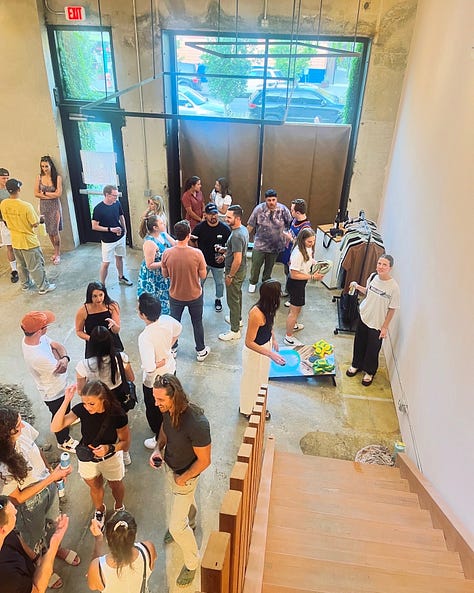
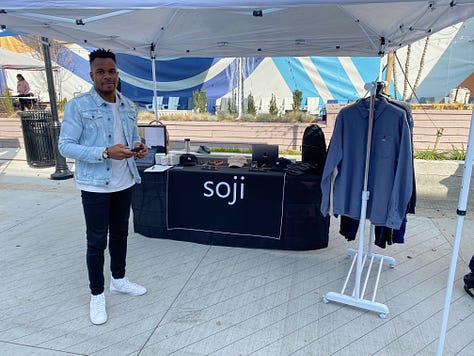
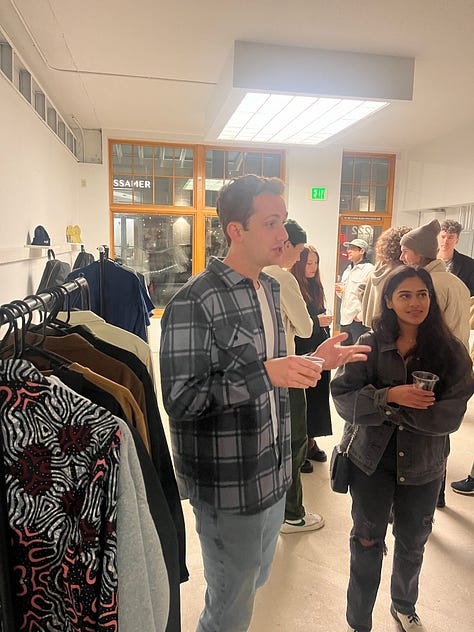
Nick: Sounds like it all came together at the perfect time. Growing a brand is super time-intensive but I’m glad you’ve been enjoying it so much. Since you’re several years in, how do you think owning a brand has changed the way you look at your own style?
Sheyi: Oh it’s changed dramatically. When I first started I was always prioritizing quality from some of the niche retailers, but more so what looked clean and wasn’t loud; very minimalist and focused on the essentials. Now I’m still very concerned about the quality but I want to find pieces that incorporate storytelling. When I started Soji, I originally wanted to help source clothes from my favorite brands that weren’t easily accessible in the U.S. because that’s what I would be interested in buying. But then I realized I had access to some really amazing talent in London and Nigeria and wanted to partner with them to make my own clothes. So when I think of different capsules, I always have that unique brand building element within it. So I’ve changed just as much as the company has over the years.
Nick: I know you’re dropping a new capsule soon. Where’d you get the inspiration for it?
Sheyi: Yeah, we’ll be releasing it in March so definitely stay tuned. I noticed that I was falling into “a sea of sameness.” Right now you can go to the website and find a backpack or a jacket, and while there is some difference to it, you could largely find something similar but in a different color or fabric from a different brand. As I’ve been doing more market research and travel for Nike and really seeing more brands across the world (from LA to London), there’s a surprisingly similarity between quite a few of them. Their overall goal was never to hyper-focus on profitability, but to tell a story that was uniquely theirs. So taking that concept, it was natural to go back to my Nigerian roots to say “how can I make these pieces more personal while also getting people excited about it?” The answer was to make everyday things that everyone will always need (t-shirts, lightweight jackets, etc) but continuing to tell the brand story within it. I’m trying to transition from nice, everyday attire to everyday classic attire with Nigerian fabric accents. The focus is on quality, authenticity and uniquely Soji fabric. And I think once people start understanding there’s a purpose behind everything I do, they’ll gravitate to that. Because who doesn’t love a good story?
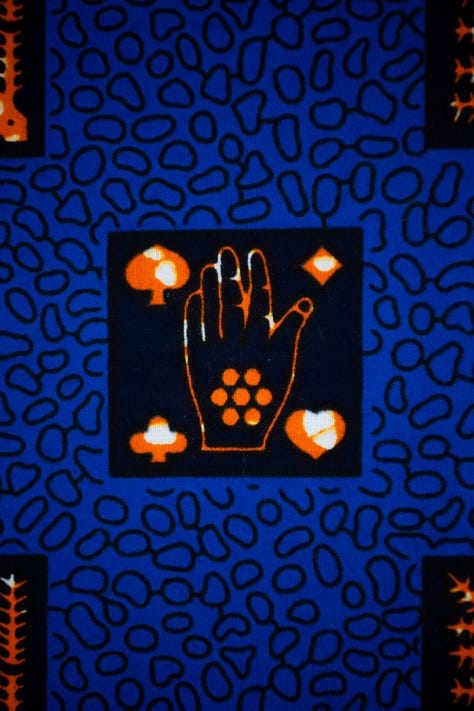
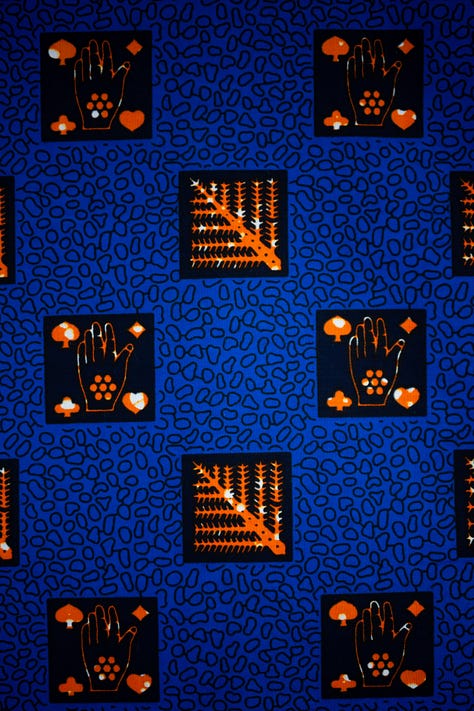
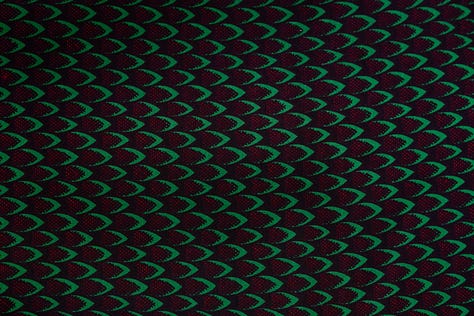
Nick: I definitely do. What are some of the challenges you’ve run into as a small clothing brand owner recently? I know everyone was getting hit with supply chain issues during and post-covid, but what are some of the other obstacles you’ve had to overcome?
Sheyi: I see two main challenges that I’m sure some of my peers are also facing. The first is marketing. I’ve never been in a full-time marketing role at any of my jobs so it’s been an adjustment to understand how to promote on social media with a very limited budget. I have to post pretty often and every time I go longer than a few days without continuing to tell the brand story, I’m missing out on reaching another group of potential customers. The other challenge is forecasting inventory without interfering with the customer experience. Since I try to make 1 of 1 type pieces with size variation, it doesn’t always lend itself to having a ton of inventory or the opportunity to do multiple restocks if one product performs particularly well.
Nick: Yeah I feel like we’re seeing that issue even with the larger brands. Some campaigns fall completely flat or certain brands just don’t lend themselves well to every body type. But I think you have the right mindset because you can’t be everything for everybody. Alright last question - what do you want people to know about Soji after this conversation?
Sheyi: I want people to know that they shouldn’t be off-put by the name or the strong Nigerian traditional style our pieces have. You’re not culturally appropriating, you’re supporting a Nigerian founder who has other Nigerians in the market sourcing this fabric from my home country and bringing something special to life. What I’m making is of the people and of the culture. Don’t be intimidated; keep that excitement and curiosity, and I’d be happy to welcome you into the Soji family.


